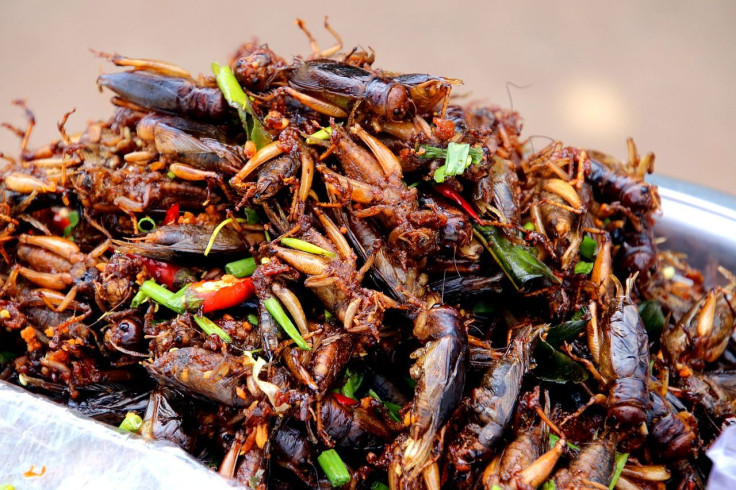Eating Insects Can Boost Gut Health While Supporting Environment, Research Shows
Of all the things ever recommended for a healthy gut, eating bugs is perhaps the most shocking one yet. However, some scientists are convinced eating insects can promote healthy gut microbiota, as well as supplement the body's protein and nutrient deficits.
Tiffany Weir, an associate professor at Colorado State University's Department of Food Science and Human Nutrition, and Valerie Stull from the University of Wisconsin have been collaborating on a research project to evaluate the impact of crickets on the gut microbiota.
Aiming to decode how cricket-derived chitin - a cellulose-like biopolymer widely used in designer chocolate patties - retains the good gut bacteria and heals IBS (Irritable bowel syndrome).
The research found that not only it helps the gut, but it also helps nature by a great measure. "Edible insects and insect fibers may be unusual in the American diet, but they are commonplace around the globe, as insects are part of many traditional cuisines," Stull said in a news release.
Researchers referenced a prior study, noting that the consumption of insects is widely practiced around the world and along with insect farming. Another reason behind the popularity of insect farming is that it uses fewer resources and cuts back on greenhouse gases.
"Although reduced environmental impacts of insect rearing compared to traditional livestock have been a key selling point for insect-based products, there are also underexplored and under-appreciated nutritional benefits," said Weir, noting that chitin is a fiber-enriched component that is unique to cricket. Plus, it is a rich source of omega-3, an amount considerably higher than those found in plant-based foods.
Here's what researchers found about insects:
- In places where insects are incorporated in meal platters, the preferred varieties are beetles, caterpillars, wasps, bees, ants, grasshoppers, true bugs and termites.
- Though bugs have varying nutrient profiles, almost all of them have all the proteins and amino acids required for human nutrition.
- Studies focusing on the risk of insect consumption, such as allergens and contaminants, found that eating insects are actually less harmful than eating chicken or beef.
- Insect consumption can alter the global food crisis and help meet global food shortages.
Therefore, scientists are seeking extensive and well-designed studies involving specific populations to encourage the widespread adoption of insect-eating practices.




























